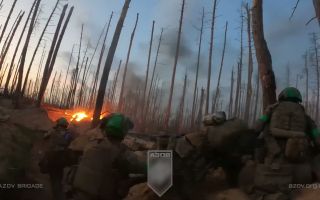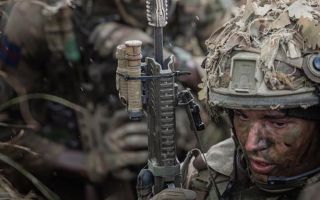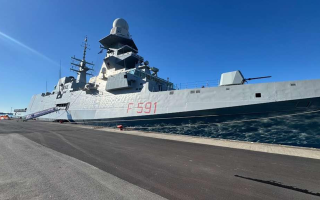Multi-Domain Operations: The Philosopher's stone of Ukrainian strategy
One of the reasons the Ukrainians have held so well against Russia so far is largely due to their organised Multi-Domain Operations (MDO), an expert has told Forces News.
Professor Michael Clarke, a former head of The Royal United Services Institute, said an MDO was "the hardest thing to achieve in warfare".
MDO is the combination of aircraft, ground forces, vehicles, satellites and ships, their systems and all sources of data.
"Whether you are on the offence or defence, success goes to the side that is able to organise its MDO most efficiently," Prof Clarke explained.
"[The Ukrainians] are struggling to break through Russian lines at the moment, but my goodness it's been a David and Goliath struggle, and their comparative advantage has been the fact that they are further ahead in MDO than the Russians evidently are."
The 'Philosopher's stone' of modern military operations
Prof Clarke added: "Multi-domain operations are regarded as the philosopher's stone of modern military operations because the [mainstays] of warfare, land, sea, air, space and cyber - some would add under the sea to that - are very difficult to put together and very difficult to organise together.
"But what we've seen in the Ukrainian war is a degree of MDO simply because the Ukrainians have got to be more inventive, they don't have a navy, but they have no choice but to engage in some sort of maritime operations.
"So they've used robotic drones, which are controlled by GPS in space and working with missiles which are fired from a land base, or in some cases air delivered missiles, so you can see they are putting some of these domains together to conduct operations against, say, Sevastopol.
"This Multi-domain operation is required in warfare, but it's not the sort of Nato MDO which are planned on a much, much larger scale.
"Nevertheless, the Ukrainians are showing that MDOs are important to conduct even at the lowest levels."
A philosophers' stone is a mythical alchemical substance that is supposedly able to turn a base metal into a precious one, such as gold or silver. In military terms, this could be represented by the whole being greater than the sum of its parts.
Find out more from Professor Michael Clarke in the video above.









